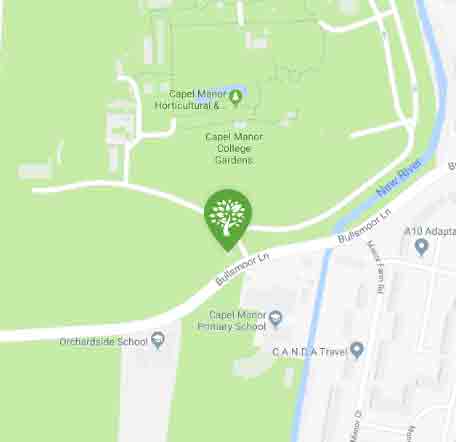- Home
- Curriculum
- Subjects
- Humanities
Humanities
Back to Subjects ListKey Stage 3
| Course | Humanities |
|---|---|
| Overview | Our Humanities units are designed to enable students to understand the nature of religious beliefs and practices and the importance and influence of these in the lives of believers. We teach a multi-faith syllabus and is designed to consider the needs of the pupils form a variety of religious backgrounds or, no religious background at all. Our Geography units are designed to provide students with the opportunity to understand how humans interact with the world and how they affect the world. Students will explore natural resources around the world like diamonds and uranium and investigate the impact of mining these resources. Our History units are designed with focus on historical sources and understanding how to investigate the validity of sources. Throughout KS3 there is an emphasis on revolution linking all topics which allow students to build on their learning each year. |
| How will I be assessed | End of topic assessment once a term. In class assessment that include quizzes, mini assessments, extended writing tasks and in class tasks such as debates and presentations. |
| What will I learn | In Humanities students will learn all major world faiths. In Geography students will learn all form of geography; physical, human and environmental. In History students will learn about British Civil War and the Transatlantic Slave Trade. |
| Skills and knowledge | In Humanities, students will develop their ability to enquire into significant human questions which religion and worldviews address. Students are taught skills to enhance their debating skills as well as developing empathy. In Geography, students will develop their map skills and their numeracy skills through the exploration of graphs and charts. In History, students will develop inference skills as well as evaluation when exploring the validity of sources. Students will develop their literacy skills. |
| Further support |
Key Stage 4
| Course | GCSE Pearson Edexcel Citizenship (9-1) |
|---|---|
| Overview | Citizenship Studies is about how people take an active part in democratic politics and work together for a better society, locally, nationally and globally. Students will learn about power, democracy, the operation of government and the legal system, and the role of the UK in the wider world. They will explore and learn about different controversial and topical issues with political, social, ethical, economic and environmental dimensions in local to global contexts. They will experience taking citizenship action and learn from trying to make a difference themselves. |
| How will I be assessed | In Class: In class assessments and quizzes, practice papers and mock exams. Exam: The Pearson Edexcel Level 1/Level 2 GCSE (9–1) in Citizenship Studies consists of two externally examined papers. Paper 1: Written examination: 1 hour and 45 minutes 50% of the qualification, 80 marks, Theme A-C Paper 2: Written examination: 1 hour and 45 minutes 50% of the qualification, 80 marks, Theme D and E and extended writing covering theme A-C. |
| What will I learn |
|
| Skills and knowledge | In Citizenship, students understand the range of methods and approaches that can be used by governments, organisations, groups and individuals to address citizenship issues in society, including practical citizenship actions. |
| Further support | https://qualifications.pearson.com/en/qualifications/edexcel-gcses/citizenship-studies-2016.html |
| Course | AQA GCSE Humanities: Short Course |
|---|---|
| Overview | This qualification is designed for pupils who want to be challenged with questions about belief, values, meaning, purpose and truth, enabling them to develop their own values and attitudes towards religious issues. Students will also gain an appreciation of how religion, philosophy and ethics form the basis of our culture. |
| How will I be assessed | Section A: The study of religions: beliefs and teachings of two religions: • Christianity • Islam Section B: Thematic studies: religious, philosophical and ethical studies: • Theme A: Relationships and families • Theme B: Religion, peace and conflict 100% of GCSE Short course = 1 written exam: 1 hour 45 minutes. 96 marks, plus 6 marks for spelling, punctuation and grammar (SPaG). Questions range from 1 mark answers all the way to 12-mark answers. |
| What will I learn | Section A: Beliefs and teachings in Christianity:
Section A: Beliefs and teachings in Islam:
Section B, Theme A: Relationships and families:
Section B, Theme B: Religion, peace and conflict:
|
| Skills and knowledge | Students will develop analytical and critical thinking skills, the ability to work with abstract ideas, leadership and research skills. Students are given the opportunity to debate issues such as the purpose of marriage as well as developing understanding of secular and religious responses to same sex relationships, divorce and other themes. Throughout the course, students will develop their literacy skills. |
| Further support | Revision website: https://www.bbc.co.uk/bitesize/examspecs/zjgx47h Exam practice work book: https://www.cgpbooks.co.uk/secondary-books/gcse/humanities/religious-studies/raq41-grade-9-1-gcse-religious-studies-aqa-a-exam Revision guide: https://www.cgpbooks.co.uk/secondary-books/gcse/humanities/religious-studies/rar41-grade-9-1-gcse-religious-studies-aqa-a-revis |

